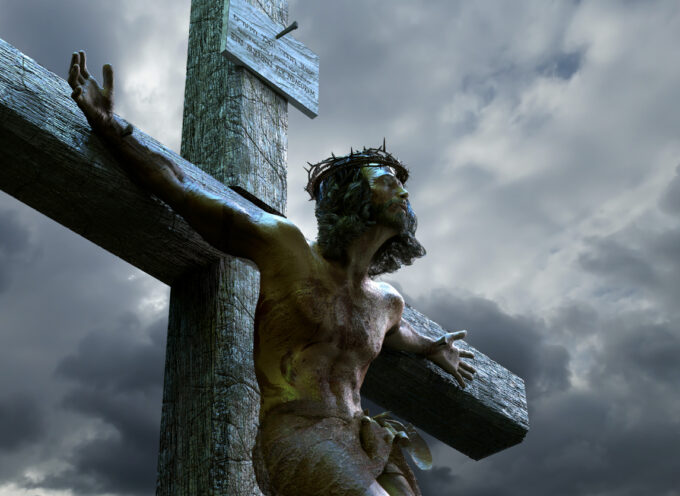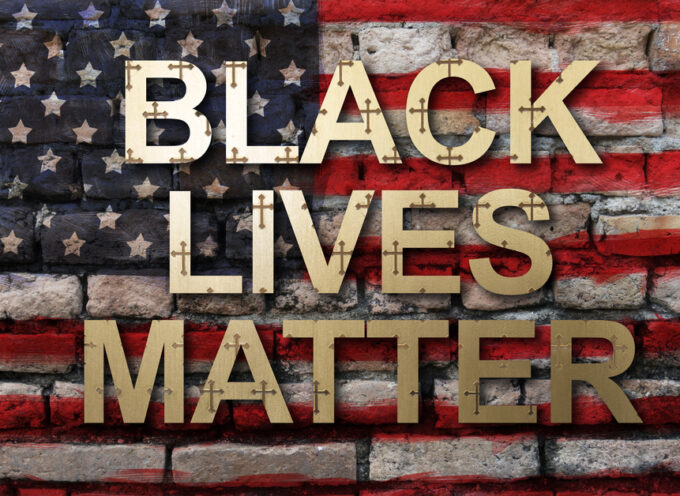Recently, I undertook a rereading of The Essential Russell Kirk. Among the many treasures I rediscovered was his essay, “Ten Exemplary Conservatives,” a sketch of ten conservatives Kirk admired. By “conservative,” he did not mean committed to some ideology but rather persons who exhibited a “longing for order and permanence, in the person and in the republic” (32).
I enjoyed the list so much that I determined to make one of my own. Thus, I offer my own list of fifteen conservative exemplars. Like Kirk, by “conservative” I am not referring to anything that has reached the level of an ideology, and by “exemplary,” I do not mean “perfect.” Instead, my conservative exemplars are people who were imperfect yet exemplary in some way, and who have influenced my life or thought in some significant manner.
1. Edmund Burke (1729-1797)
My first exemplary conservative is Edmund Burke, an English-Irish lawyer, writer, member of parliament, and father of modern conservatism. Burke is an exemplar in many ways. He served with distinction as a member of the British parliament, argued forcefully for the defense of the English constitution, and wrote a number of books and tracts. But Burke’s greatest legacy is found in his critical response to the French Revolution and to social revolutions in general. He was deeply and finally skeptical of any claim to have discovered the historical processes by which societies develop, and therefore also opposed to any attempts to “clear the decks” socially in order to rebuild society from the ground up. Instead of revolution, Burke encouraged reform, which is always taken in order to correct a specific injustice or deficiency. In other words, while a social revolutionary wishes to abolish the social order and its cultural institutions in order to force society to conform to an ideology, a social reformer seeks to preserve but improve the existing order and its institutions.
2. Samuel Johnson (1709-1784)
My second exemplar is a renowned man of letters and perhaps the sharpest wit of all time: Samuel Johnson. A contemporary and sometime critic of Burke, Johnson is exemplary in his efforts to preserve the Judeo-Christian moral tradition in English society. He was also exemplary in his effort to conserve the English language and mind through the publication of A Dictionary of the English Language, often hailed as one of the greatest achievements in modern scholarship. More than anything, however, Johnson is remembered as the greatest English wit. Examples abound. For instance, he described one contemporary as “dull, naturally dull; but it must have taken him a great deal of pains to become how we now see him. Such an excess of stupidity…is not in Nature.” Of another opponent, he remarked that it is “amazing how little [he] knows. He seldom comes where he is not more ignorant than any one else.” Of yet another, he said, “The next subject you talk to him of, ‘tis two to one he is wrong.” Fishing for something good to say about another adversary, he came up with no more than, “He fills a chair.” About a fellow writer with whom he refused to meet, he explained, “I never desire to converse with a man who has written more than he has read.” Et, as they say, cetera. Johnson could slice and dice.
3. Guillaume Groen van Prinsterer (1801-1876)
My third exemplar is an obscure nineteenth century Dutch historian: Guillaume Groen van Prinsterer (hereafter, “Groen”). Groen served as cabinet secretary for King William I in the United Kingdom of the Netherlands before proceeding to a career as an archivist, historian, political commentator, and newspaper owner and editor. However, he is best known for his forgotten classic, Unbelief and Revolution, in which he argues that the French Revolution shouldn’t be dismissed as a failed political project of a previous era. Instead, the Revolution lives on through its dangerous ideas that would continue to subject the West to social, cultural, and political convulsions and recurrent revolutions. The Revolutionary spirit replaces God with man, divine revelation with autonomous human reason, and a transcendent morality with immanent, self-authorized morality. In response, Groen calls for a retrieval: European societies should return to the understanding that moral order is framed in relation to creation order, that political authority is ordained by God, that law and justice are rooted in an objective moral order funded by God, and that truth is objective and rooted in God’s revelation of himself. (For my brief summary of Groen’s lectures, click here.)
4. Theodore Roosevelt (1858-1919)
My fourth exemplary conservative was a leader, a fighter, and a writer: Theodore Roosevelt. In the third grade, each student was asked to write a mini-biography of a public figure; I chose “Teddy” Roosevelt and wrote about his exploits on the battlefield and in the White House. It has been assumed by some that Roosevelt was a progressive, but I think he is best understood as a conservative. Marxist historian Richard Hofstadter’s vitriolic rant about Roosevelt speaks volumes:
The frantic growth and rapid industrial expansion that filled America in [Roosevelt’s] lifetime had heightened social tensions and left a legacy of bewilderment, anger, and fright, which had been suddenly precipitated by the depression of the nineties. His psychological function was to relieve these anxieties with a burst of hectic action and to discharge these fears by scolding authoritatively the demons that aroused them. Hardened and trained by a long fight with his own insecurity, he was a master therapist of the middle classes.
Yet, as with any good conservator, Roosevelt was not afraid to call out the demons that must be exorcised, including specifically the unequal treatment of blacks in America.
5. Abraham Kuyper (1837-1920)
My fifth exemplar began his adult life as a pastor but went on to launch a national newspaper, establish a private university, and found a political party, all the while writing a couple dozen books and serving as a member of the Dutch parliament and later as Prime Minister. As a political leader, he was exemplary in his solidarity with working class people, his attempts to limit the government to its rightful role, and his fight against the ideas of the French Revolution. As a religious leader, he was exemplary in his attempts to uphold the transcendent moral order and help society conform to God’s creational design and redemptive plan. As a public intellectual, he was exemplary in arguing for societal pluriformity: Kuyper argued that creation is a unified diversity, an ordered but multi-faceted reality. Indeed, God designed the world to have diverse cultural “spheres.” On this spatial analogy each sphere of culture—such as art, science, politics, and commerce—has its own center (unique reason for being) and its own circumference (limits to its jurisdiction). Christians must understand each sphere’s reason for being, must help each sphere conform to that reason, and must help each sphere stay within its own jurisdiction. (I have written brief articles about him here, here, here, and here, and have podcasted about him here.)
6. T. S. Eliot (1888-1965)
My sixth exemplar was an American-turned-British poet, essayist, playwright, public intellectual, and Nobel Laureate. “We yield to the permanent things, the norms of our being,” Eliot writes, “because all other grounds are quicksand.” The permanent things for which he stood stemmed from his immersion in the biblical and classical traditions. He understood human depravity and thus was deeply and finally skeptical toward secular progressives who severed social order from religious heritage and offered social revolutions as the solution for society’s evils. In The Idea of a Christian Society, he wrote:
As political philosophy derives its sanction from ethics, and ethics from the truth of religion, it is only by returning to the eternal source of truth that we can hope for any social organization which will not, to its ultimate destruction, ignore some essential aspect of reality. The term ‘democracy,’ as I have said again and again, does not contain enough positive content to stand alone against the forces that you dislike—it can easily be transformed by them. If you will not have God (and He is a jealous God) you should pay your respects to Hitler or Stalin.
Elsewhere, he warned against utopian revolutionaries who are ever “dreaming of systems so perfect that no one will need be good.” Thus, Eliot was a man under Authority, a man captivated by permanent things.
7. Dorothy Sayers (1893-1957)
My seventh exemplar, Dorothy Sayers, was a playwright, fiction writer, translator, and sometime theologian. Sayers believed that the best literature and art conforms to God’s transcendent and eternal standards of truth, goodness, and beauty. In an Augustinian vein, she argued that there were objective truths about God and morality that can be “read off of” the created order, truths that should inform the imagination of thinkers, writers, and artists during the creative process. However, she also recognized sin’s impact on the world as it disorders our affections and distorts our interpretation of the world. In other words, attention must be paid to sin’s corrupting and misdirecting effects on the human heart and mind. Sayers was no idealist and under no illusions; she knew that one cannot achieve the ideal society through social revolutions. Instead, conservative artists, writers, and thinkers should aim at the human heart and work for cultural reform rather than social revolution.
8. C. S. Lewis (1898-1963)
My eighth exemplar, C. S. Lewis, was a professor at Oxford and Cambridge universities during the middle of the twentieth century. During his early years as a professor, he was agnostic, but later experienced a conversion to Christianity after extensive reading of Scripture and conversations with his friend J. R. R. Tolkien. His conversion was dramatic, in that his newfound faith affected both his personal and professional life immediately and comprehensively. His more than 30 books included science fiction, mythology, children’s fiction, theology, and literary studies. Taken together, his biography, publications, and correspondence reveal a deeply conservative impulse in Lewis. In terms of politics and public life, Lewis was especially concerned to reveal the beauty of the “thou shalt” and “thou shalt not” as revealed generally in nature and specially in Scripture.
9. Hannah Arendt (1906-1975)
My ninth exemplary conservative is a Jewish German-American philosopher and social critic: Hannah Arendt. Although she doesn’t fit neatly as a conservative, she was, in Irving Louis Horowitz’s phrase, a “radical conservative.” One of the most compelling, controversial, and iconographic public intellectuals writing in the wake of Naziism and the emergence of Communism, Arendt was a fiercely articulate opponent of authoritarian and totalitarian movements. The special evil of totalitarian ideologies, she argued, is not merely that they foist revolutionary change on societies, but that they seek to transform human nature itself. For this reason, “the ideal subject of totalitarian rule is not the convinced Nazi or the convinced Communist, but people for whom the distinction between fact and fiction (i.e., the reality of experience) and the distinction between true and false (i.e., the standards of thought) no longer exist.” In opposition to the totalitarian suppression of the person, Arendt offered a vision in which genuine politics is fostered by the existence of public spaces where people can speak freely and show who they really are. Opinions, she argued, are only formed in genuine encounters with other people, and authentic politics only exist when genuine encounters and opinions are involved.
10. Russell Kirk (1918-1994)
My tenth exemplar was the inspiration for this article: Russell Kirk. He began his career as a writer and speaker in the context of the Nazi and Soviet atrocities. Influenced by the classical and biblical traditions, he remained on the frontline of the war of ideas for nearly half a century, writing more than thirty books and innumerable essays against the forces of religious disenchantment and social revolution. He viewed himself as a conservator of the best aspects of Western civilization, including its religious heritage, moral customs, and cultural institutions, but he also viewed himself as a reformer seeking to remove the unjust aspects of our civilization. Kirk was not primarily a partisan. George A. Panichas writes, “His aim, he makes unmistakably clear, is to improve the life of the mind and of the spirit and to foster discriminations and judgments. He does not necessarily seek to make friends or even allies of his readers, but instead to appeal to their right reason and sense of justice—and to beckon them to join him on the path to truth. He does not shout or shove or strut.” I especially admire the way Kirk’s writing is learned but accessible to broader audiences.
11. Ronald Reagan (1911-2004)
My eleventh exemplar was the fortieth president of the United States and a conservative icon. He is the first American president to capture my imagination. Together with Pope John Paul II and others, he helped bring an end to the Cold War. He believed in evil and was willing to call the Soviet Union what it was—an evil empire. Shortly thereafter, in a speech at the Brandenburg Gate, he challenged General Secretary Mikhail Gorbachev to “tear down this wall!” Just ten months after the completion of his second term, the wall indeed fell. Just three years after he left left office, the Soviet Union dissolved. In terms of domestic policy, his tenure nudged the nation in a more conservative direction, causing even Bill Clinton to move to the right economically. Published evaluations of his presidency by historians and polls of the general populace often place him among the greatest ten or fifteen American presidents.
12. Philip Rieff (1922-2006)
My twelfth exemplar, Philip Rieff, was a Jewish sociologist whose writings I discovered shortly after having returned from living in Russia in 2000. In the 1970s, Rieff was a rock star public intellectual and a darling of the political Left. During the 1980s and 90s, however, Rieff underwent a period of reevaluation after which he emerged as an essentially conservative mind. In the Sacred Order / Social Order trilogy, published around the time of his death in 2007, Rieff argued that the West is in the midst of a historically unprecedented attempt to sever social order from sacred order. All civilizations everywhere, Rieff averred, have recognized that sacred order shapes cultural institutions and cultural products, and that those cultural phenomena in turn shape society. But in the mid-twentieth century, many Western cultural elites (whom he called “the officer class”) set forth to sever our society and its cultural institutions from their roots in the Judeo-Christian tradition. The result of this exercise, Rieff concludes, has been social turmoil and cultural rot. The very cultural institutions and products that should bring life and vitality to society are now bringing death and decay. Yet, Rieff was optimistic, arguing that the West awaits “a people” who will recover the frightening beauty of the “thou shalt” and “thou shalt not.” Indeed. (I have written a brief article and a longer essay about Rieff.)
13. William F. Buckley, Jr. (1925-2008)
My thirteenth exemplar was an essayist, debater, public speaker, and leader of the twentieth-century conservative movement in late-twentieth century America: William F. Buckley, Jr. As founder and editor-in-chief of National Review, Buckley was the public intellectual around which the American conservative movement coalesced. As host of the television show Firing Line, his substantive intellect, fierce debating skills, formidable vocabulary, and charismatic personality made being conservative attractive and respectable. As an essayist, Buckley was known for elegant prose, an expansive vocabulary, fascination with obscure words, and use of new conventions in journalism (such as made-up words and Ironic Capitalization). As an intellectual, his wit was memorable and often devastating. For instance, in a debate with Norman Mailer about the meaning of American conservatism, he expressed doubt that Mailer is much interested in conservatism: “I am not sure we have enough sexual neuroses for him. But if we have any at all, no doubt he will find them and celebrate them.” He further expressed delight in Mailer’s criticism of him: “I do not know anyone whose dismay I personally covet more because it is clear from reading the works of Mr. Mailer that only demonstrations of human swinishness are truly pleasing to him.” As a person, Buckley’s capacity for friendship was unsurpassed; he was known not only for the multitude of his friendships but also for warmth and loyalty that characterized them.
14. Richard John Neuhaus (1936-2009)
My fourteenth exemplar is the only one whom I knew personally: public theologian, essayist, and movement leader Richard John Neuhaus. As the founder of First Things magazine and a prominent speaker and social critic, Neuhaus set forth the case that the transcendent moral framework revealed by natural law and affirmed by Scripture is the best basis for human flourishing and thus a Christian society is the best basis for a healthy democratic republic. Neuhaus was a tireless proponent of permanent things and a tireless and effective critic of progressive social engineering. In his many essays and especially in the infamous “While We’re At It” section of his magazine, Neuhaus exhibited an extraordinary wit. His favorite targets, as I remember, were The New York Times, the abortion industry, the World Council of Churches, the Jesuits, the Episcopal Church, and religious and political progressives. In a given edition of “While We’re At It,” the opening line might be, “The New York Times is the most influential communications medium in the world. Poor world.” In another, it might be “Bishop John Shelby Spong is a religious phenomenon of our time and his retirement should not go unremarked. In person and in his writings, he is a man of breathtaking intellectual and spiritual vulgarity. His towering self-approval, clearly intended to intimidate, only astonishes.” In yet another, “One cannot help but be impressed by how, in these and other instances, Richard Rorty is so thoroughly mistaken in describing the world of which he is part.” Only a man born with a petrified diaphragm, to quote H. L. Mencken, could fail to laugh aloud.
15. Thomas Sowell (1930-)
My fifteenth exemplar, Thomas Sowell, is an academic economist, syndicated columnist, public intellectual, and National Humanities medal recipient. A polymath, Sowell authored more than 30 books and countless essays and opinion pieces on economics, political ideologies, education, race, gun control, and other critical issues. Having rejected his early embrace of Marxism, Sowell made devastating arguments against utopian aspirations that are always, in the end, disastrous for society and culture. “Much of the social history of the Western world over the past three decades,” Sowell wrote, “has involved replacing what worked with what sounded good. In area after area—crime, education, housing, race relations—the situation has gotten worse after the bright new theories were put into operation. The amazing thing is that this history of failure and disaster has neither discouraged the social engineers nor discredited them.” Sowell argued that society needed to recover the “tragic vision” of humanity promoted in the biblical and classical tradition, a vision that understood that evil lurks in the human heart. Against the progressive “utopian vision” in which society needs to cast off norms and raze oppressive institutions, Sowell argued that external constraints—moral norms, institutions, traditions, religions, and even nations—are necessary to constrain evil and foster human flourishing.
Conclusion
What a splendid and diverse gathering of people whose lives and writings give evidence of a conserving impulse. Two American presidents, a Dutch historian, an English playwright, a Dutch prime minister, a German-American philosopher, an African-American economist, a Jewish sociologist, and more than a half dozen writers and public intellectuals. To be located on the right hand of the spectrum is not parochial and is not necessarily ideological. Instead, it is to possess a disposition to preserve and reform society and culture rather than to overturn and replace social order and cultural institutions.
Indeed, the fifteen people whose profiles I have sketched courageously opposed the forces of disorder that threatened to reduce their social and cultural contexts to chaos. Profiting by their examples, therefore, we folks at the beginning of the twenty-first century must rouse ourselves and defend the permanent things against those who would upend the social order in their attempts to achieve a progressive utopia of one sort or another.
Subscribe
Never miss a post! Have all new posts delivered straight to your inbox.








[ Christ Brings Division ] “Do not think that I came to bring peace on earth. I did not come to bring peace but a sword. Matt. 10:34 NKJV
To be located on the right hand of the spectrum is not parochial and is not necessarily ideological. Instead, it is to possess a disposition to preserve and reform society and culture rather than to overturn and replace social order and cultural institutions.
I started out in my young adulthood as “liberal” and as I embraced Christ moved to a “conservative” ideology during GW Bush. As I became more biblically aware maturing in God’s word the corruption of political ideology became clearer to me. As a Christian whether the politics are liberal or conservative, if it cannot be perceived as having a firm foundation in God’s word I reject it. Using your metric Jesus in Matthew 10 would be a flaming liberal. He did not come to “preserve and reform a culture” that was corrupt to it’s core. If there is no radical transformation then there is no “new birth”. Today modern conservatism has devolved into a hideous ideology. I know that you know Brother that none of these things will stand. I personally had to stop encouraging people from following political ideology whether it be liberal or conservative, because it will lead you away from Christ. You have Christians today that will not even talk to someone of the opposite ideology. That is not of God. Look at where we are today as a nation. My prayer and sincere desire is that we would turn from a trust in this world and turn to the radical love of Jesus. Bless you Brother and give my encouragement to my Brothers and Sister at Southeastern.